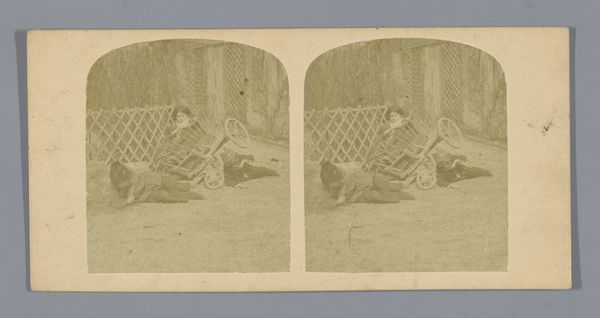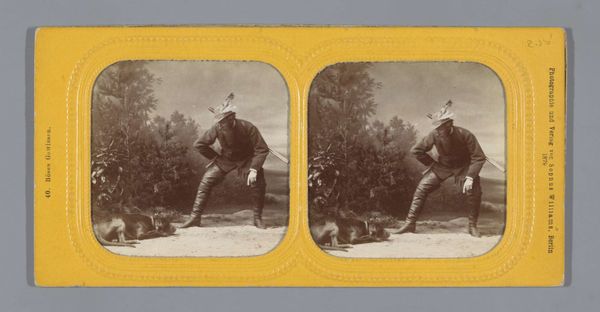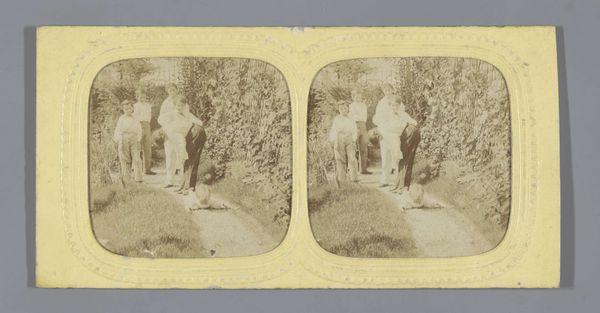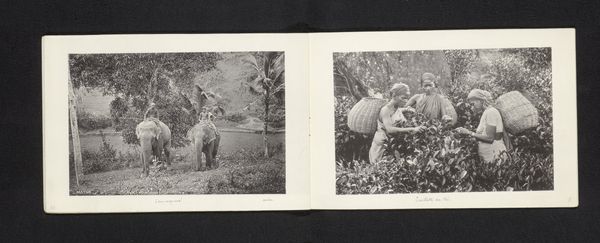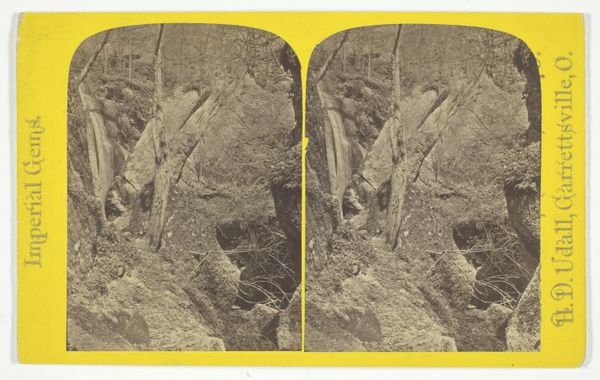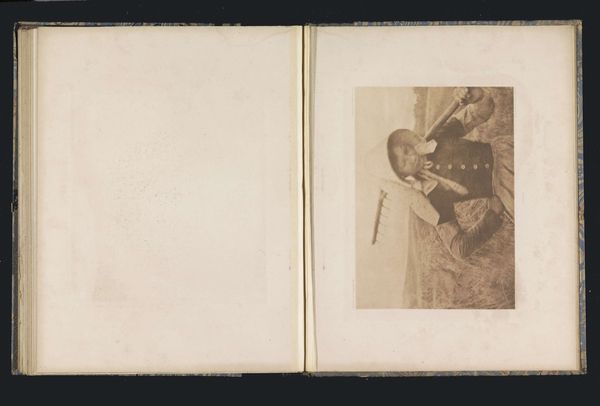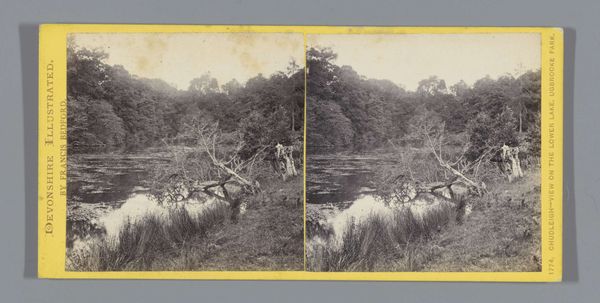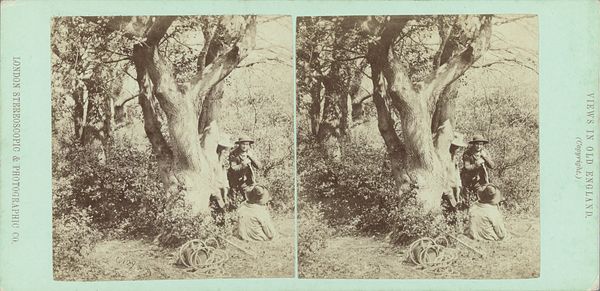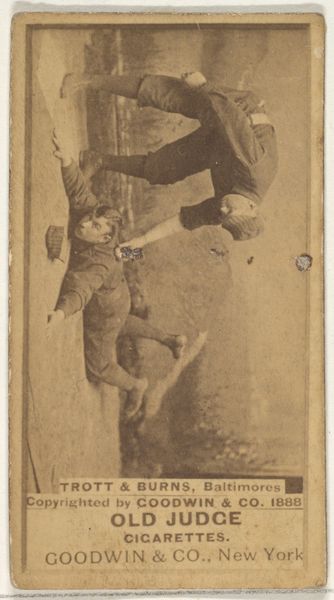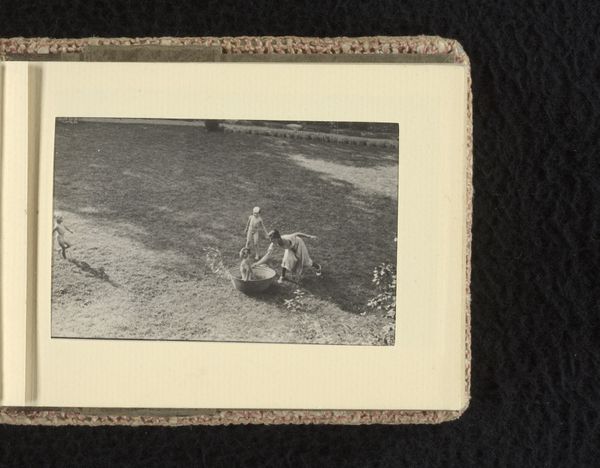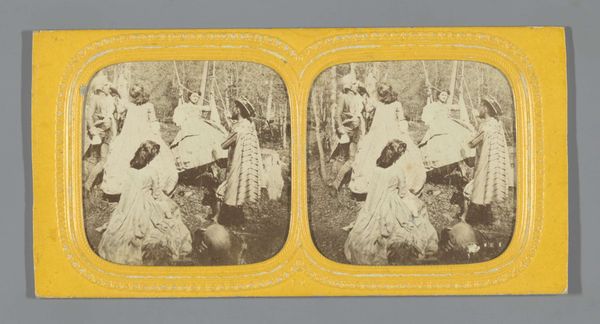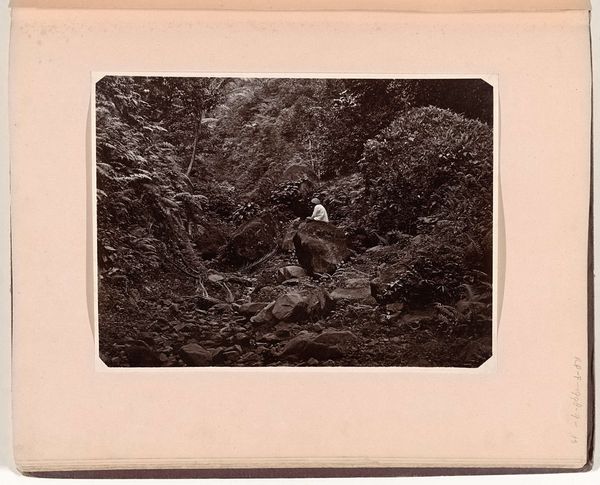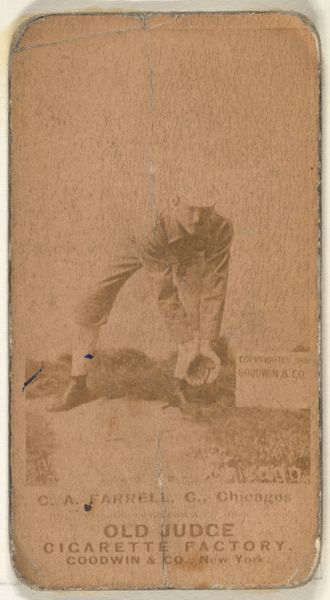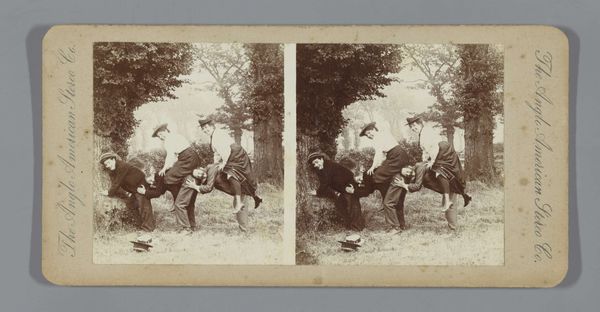
photography
#
still-life-photography
#
landscape
#
photography
#
realism
Dimensions: height 88 mm, width 173 mm
Copyright: Rijks Museum: Open Domain
Editor: Here we have "Groene leguaan op de Antillen," a photograph taken sometime between 1865 and 1875 by Adolphe Block. The iguana is so still and the framing feels a little…staged, somehow? How do you interpret this work? Curator: This image offers a fascinating glimpse into the history of colonialism and scientific exploration. This photograph reflects a European desire to capture and classify the natural world of colonized territories, turning living beings into specimens. It makes you wonder, doesn't it, about the relationship between power and knowledge in that era? Editor: It does. The idea of turning a living being into a specimen. That's really chilling, especially given the history. Did this perspective impact photographic practices at the time? Curator: Absolutely. Early photography, especially in colonial contexts, was often used to reinforce racial and cultural hierarchies. The way the iguana is presented – posed, almost – echoes the way people from colonized lands were also frequently objectified and exoticized in photography. The framing is crucial; who decides what’s worth showing and how it’s shown? Editor: So it’s not just a photograph of an iguana. Curator: No, it is a potent symbol of a complex power dynamic. We must also consider how seemingly neutral images can perpetuate harmful ideologies. Does it challenge our contemporary understanding of animal rights, scientific ethics and colonialism's legacy? Editor: It definitely complicates my initial impression. It’s a beautiful, detailed photograph, but now I can see how it connects to bigger historical issues. I'll never look at still-life photography quite the same way again. Curator: Exactly. By analyzing these seemingly simple images, we expose and critically engage with entrenched systems of oppression and begin working towards a more ethical future.
Comments
No comments
Be the first to comment and join the conversation on the ultimate creative platform.
